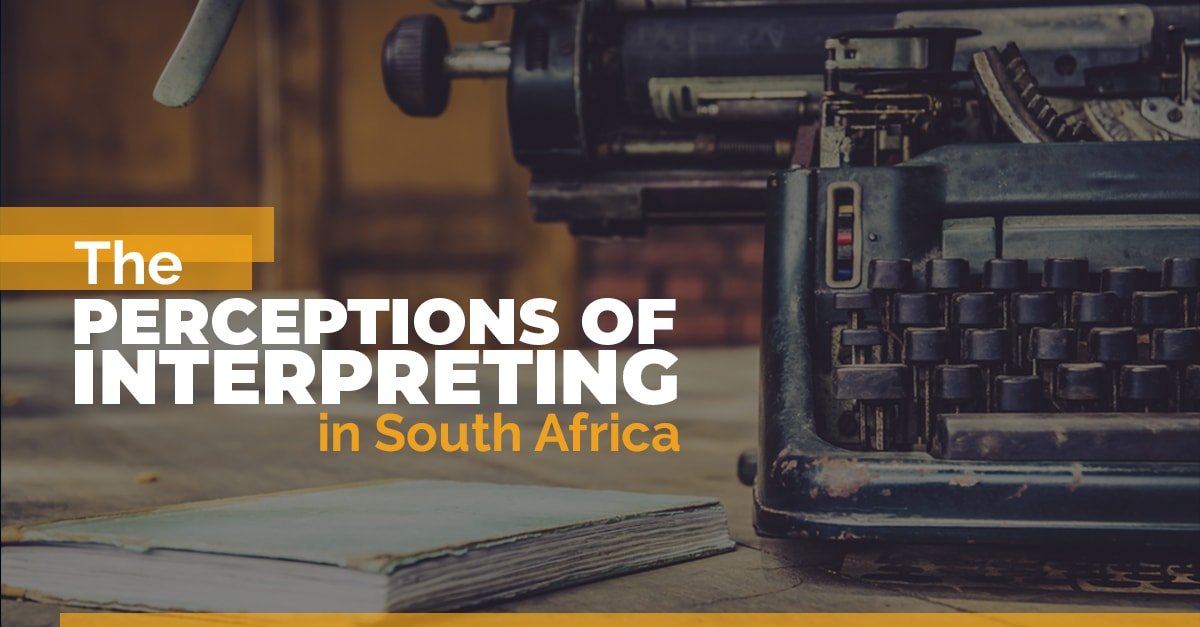In recent years, a lot has been done to make interpreting services look and feel more professional. This has been achieved through accreditation, training and research. However, there is still a belief that South African interpreters are incompetent and there are a number of reasons for this. However, translating and interpreting services are making great strides in the right direction but what are these perceptions still apparent?
The Underpinnings of this Perception
The industry was almost shaken to the core in recent years due to errors being made by interpreters in both the Oscar Pistorius trial and the Memorial Service of President Nelson Mandela. The whole world was watching and that severely tarnished the interpreting industry in South Africa. At this point, there were perceptions already formed about interpreting and translation services in South Africa and these were based around a lack of quality.
For the profession, this is a concern and these beliefs do not completely align themselves with the way in which the industry is making moves in the right direction. The profession has now been regulated and there is now a South African National Language Practitioners’ Council Act along with the development of training programmes for interpreters as well as research recommendations. All of this proves that a lot has been done for interpreting services in South Africa.
When did it all change?
When you have a profession that is unregulated, naturally this is going to create perceptions. As far back as 1999, it was recognized that interpreting services were not positioned in public domains including courts, the police service and even hospitals. Therefore, this lack of interpreting service did not leave the public feeling as though it was a profession that could be trusted and the fact that untrained interpreters were being used made it all feel as though it was lacking in any kind of professionalism.
The lack of interpreting services resulted in increased levels of misunderstanding and that lead to citizens being refused the information and assistance that they were entitled to. This once again strengthened the belief of the South African public. In those cases where interpreters were available there was a lack of understanding of the role they had to play and how it fitted in with the needs of the user and this resulted in frustration.
Has Much Changed?
While there is a general feeling of concern, especially when many of the news stories that shed a bad light on the profession are still available, there is an element of positivity surrounding the profession. Interpreter training has improved considerably and many more students are enrolling on interpreting courses at many institutions. There is an accreditation in place but it is not compulsory, so more could be done to address this issue.
There is also an increase in interpreting in the educational sector and many top universities now have classroom interpreting proving that it is no becoming mainstream in a more professional and consistent way.
What are the Skills an Interpreter Should Possess?
While there are many misconceptions of the industry, there is no doubt that the right changes are being made. From regulation through to the South African National Language Practitioners’ Council Act, interpreter and translation services are now beginning to sway the thoughts and feelings of the public in a positive way. So, what are the skills that an interpreter should possess? The following list is the main skills that interpreters should possess in order to carry out a professional and reliable service.
- An enhanced knowledge and understanding of both languages.
- A greater understanding of the terminology that is used in many different scenarios or situations
- Skills that relate to interpreting, listening and analyzing.
- The ability to deal with problems that might arise such as where there are no equivalents in the target language.
- The ability to take notes where required in order to prevent them from asking witnesses to repeat what they have said.
- Understanding where to position themselves in a courtroom as well as having an understanding of courtroom procedures.
- They need to be able to conduct themselves professionally and consider the ethics of all involved.
- Manage stress.



One Comment
Reinhardt
Thanks for the valuable information you shared. This above skills helps one a lot while choosing the right interpreter.
– Kopjeoutsourcing.co.za
10:22 am - January 18, 2019